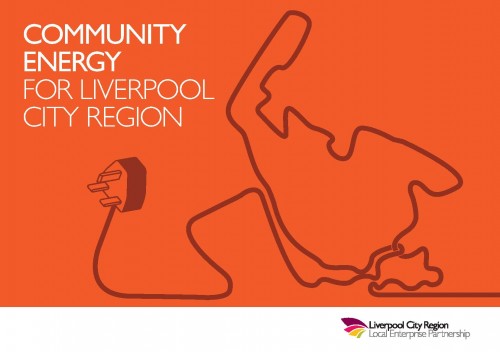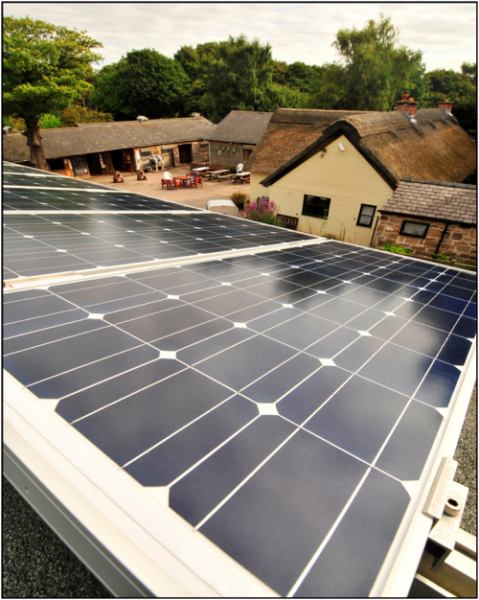In March of this year we launched our guide to Community Energy for the Liverpool City Region. We wanted to draw focus to an emerging sector within the low carbon economy. Six months on and we are reflecting on what is next for community energy and the renewables sector in general.

The UK landscape for renewable energy generation is changing. Recent announcements from Government have signalled that there is likely to be a scaling down of the incentive mechanisms which have so far supported significant activity in the sector.
Financial incentives have helped uptake of so called ‘micro-generation’ technologies, initially designed to bridge the gap between small scale productions costs and mass market manufacturing volumes. The Feed-In-Tariff (FIT) has been particularly effective, creating a market for solar panels on hundreds of thousands if not millions of rooftops.
Across the Liverpool City Region there are over 7,000 installations registered for FIT.
The FIT, and similar mechanisms, tend to reward early adopters of renewable technology with a regular income for up to 25 years, whilst paying back initial investment in as little as five years. Government is now consulting on the future of the FIT. Rumours suggest that after a period of ‘decrement’ of the value of financial payments, it will be redesigned.
We expect that some form of Government support will still be needed to promote the take up of micro-generation technology, as it is an important part of the UK’s drive to improve energy security, as well as our long-term commitment to reduce Green House Gas emissions. However, we anticipate that the review will look for mechanisms that ensure that value for money is provided to all energy consumers, not just the direct investors in technology. We will watch this space with a spotlight!
We continue to believe there are a vast range of opportunities in the Renewables sector, particularly at a local level. For instance Community Energy schemes have a proven track record in providing significant local benefits, not only in financial terms but in other, harder to quantify, social benefits.
So despite the potential impacts that changes in Government support may provoke, we are still keen to encourage motivated groups to explore their local energy options; we look forward to picking this up with you at our event, detailed below, and with subsequent opportunities across the City region.

Community Energy & Corporate Social Responsibility
Community energy groups are often linked to neighbourhood networks or social enterprises. In a typical example, a community group approaches an organisation which has a need for energy. The Community Group implements a technology for a building owner – maybe by covering the roof with a substantial area of electricity generating solar panels. Crowd funding is used to raise the necessary capital from individual investors. The revenues first go to paying back these community investors in the form of dividends.
Attractive rates of return also leave some headroom for a contract to be agreed with the building owner, who might realise a 30% reduction on part of their energy bills. Meanwhile a proportion of the profit is set aside to support social enterprises and charity groups in the local area.
In community energy, groups can become a Community Benefit Society. The legal constitutions of these types of co-operative organisation ‘lock-in’ the ongoing governance of their assets, so that they must be directed at civic outcomes for the lifetime of their operation.
Promoting Community Energy is therefore a great way for partner businesses to demonstrate their Corporate Social Responsibility.
Socially conscious businesses already engage with their local communities; perhaps by providing funding to local charities or encouraging staff to volunteer their time. Hosting a community energy project is another way to demonstrate Corporate Social Responsibility, and might provide direct funds for related activities.
James Johnson, Sustainable Energy Projects Manager, Liverpool City Region LEP
